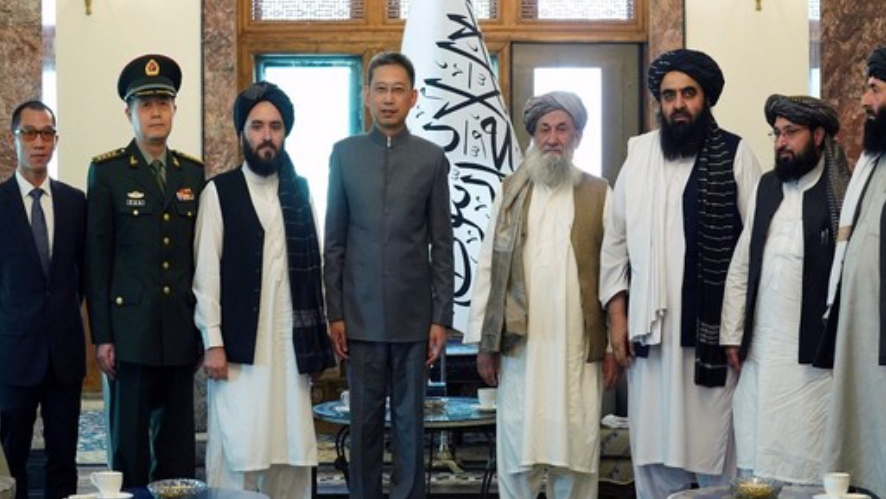Blog Special: India needs to invigorate its Climate Diplomacy
- SIS Blog

- Jul 25, 2024
- 4 min read
Updated: Jul 30, 2024

By Prof. Sameena Hameed
As the sense of urgency is gripping the world in the face of climate change and environmental degradation, it’s time for India to showcase its leadership in saving our planet. When the comity of nations was grappling to address the issue through the first UN Conference on Human Environment in Stockholm in 1972, a group of rural women from India, unaware of the global initiative had launched one of the biggest environment movements in Indian history. The Chipko movement, by clinging to the trees, was a successful attempt to save the forest lands in the state of Uttarakhand (then Uttar Pradesh) from industrial giants. Further on, India’s then Prime Minister Indira Gandhi in the conference gave the echoing formulation “Poverty is the worst source of pollution” thereby incorporating the perspective of developing countries in the discourse.
In the 21st Century, India under Prime Minister Narendra Modi made seminal contribution to the discourse and efforts towards combating climate change and saving the environment. In the negotiations, during United Nations Framework Convention on Climate (UNFCCC) (also called COP21) in Paris, India along with countries like China and US prevented a legally binding targets in favour of voluntary commitments through Intended Nationally Determined Contributions (INDC). India’s philosophy and practises have generated a compelling ideation for global community to emulate and collaborate. India’s has enhanced its INDC voluntary targets and as per the August 2022 pledge, it aims to reduce its emissions intensity of its GDP by 45 percent by 2030, from levels in 2005, and of achieving 50 percent cumulative electric installed capacity from renewable energy resources by 2030. Prime Minister Narendra Modi also took the lead in establishing an International Solar Alliance (ISA) during COP21 and the secretariat is based in Gurugram in India.

Prime Minister Narendra Modi gave a call for climate justice that urges all nations to collaborate to address climate change, that has devastating impact on the lives and livelihood of vast multitude of humanity especially in the Global South. Extreme weather conditions, increased frequency of droughts, floods, hurricanes etc have exacerbated the likelihood of poverty, multiple deprivations and precarious migration. Modi’s book on Convenient Action: Continuity for Change was jointly released by French President Francois Hollande (along with PM Modi) on the sideline of COP21. Giving examples of restoration of ponds and water bodies as ‘water temples’, his book illustrates how people can be motivated to save environment through cultural persuasions. During COP26 in 2021, PM Modi launched mission LiFE i.e lifestyle for environment, as global mass movement that seeks to generate a cumulative effect of pro-environment changes in individual lifestyles at global level. India’s recent Supreme Court judgement underscores the imperative to address climate change as matter of individual’s right to life and equality.
India’s corporates sector is increasingly pledging action for climate change and several start-ups are making business case in climate-smart practices. The US$21 billion Mahindra Group have invested extensively in businesses that supports environment like renewable energy, electric vehicles, logistics, green buildings and hospitality sector. The private sector had invested heavily in India's Clean Development Mechanism projects. Climate start-ups are making seminal contribution in agriculture, transport and energy and supported by government’s Start-up India scheme. Through these endeavours and public-private partnerships, India made a quantum leap from 31st position in Climate Change Performance Index (CCPI) to 7th in 2023, and remained among top performers in the last five years.
India has pitted its foreign policy on establishing development partnerships specially with developing countries around the world. Thorough investments, aid and training, India has been contributing to development of countries in the Global South. India can consider mainstreaming projects under Sustainable Development Mechanism (SDM) under the Paris Agreement to facilitate countries in achieving their INDCs. Globally, India ranks fourth in installed renewable energy capacity (including large hydro), in wind power capacity and in solar power capacity (as per REN21 Renewables 2022 Global Status Report). Few stellar Indian companies like L&T, Tata Solar have international presence in renewable energy projects. The first Renewable Energy Global Investment Meet and Expo (RE-INVEST) was organised in February 2015 to provide a platform for the global investors to engage with enterprises in India. In January 2022, India signed an agreement with International Renewable Energy Agency (IRENA) based in Abu Dhabi to strengthen collaboration in field of renewable energy. India aims to become a major producer of green hydrogen to decarbonise its industrial sector. Besides, a wide spectrum of start-ups and small and medium enterprises are emerging as social enterprises that are making business case in the Indian ethos of ‘reduce, reuse and recycle.’
Social enterprises are emerging in providing innovative solutions to address climate crisis and adaptation in India and around the world. Supporting social innovators with finance through public-private partnership would be the self-reliant way of adapting to climate change in the developing world. The developing countries suffers more from adversities of climate change and need larger adaptation mechanism, which faces challenges of technology and finance. India needs to invigorate its climate diplomacy that pivots on its corporates and social enterprises in building climate resilience. India’s climate diplomacy would be elevated by SDM projects ‘delivered by India’, climate-smart B2B networking, and promoting social enterprises and climate finance.
This Article is an Original Contribution to the SIS Blog.
Prof. Sameena Hameed is the Chairperson, Centre for West Asian Studies, SIS, JNU.




